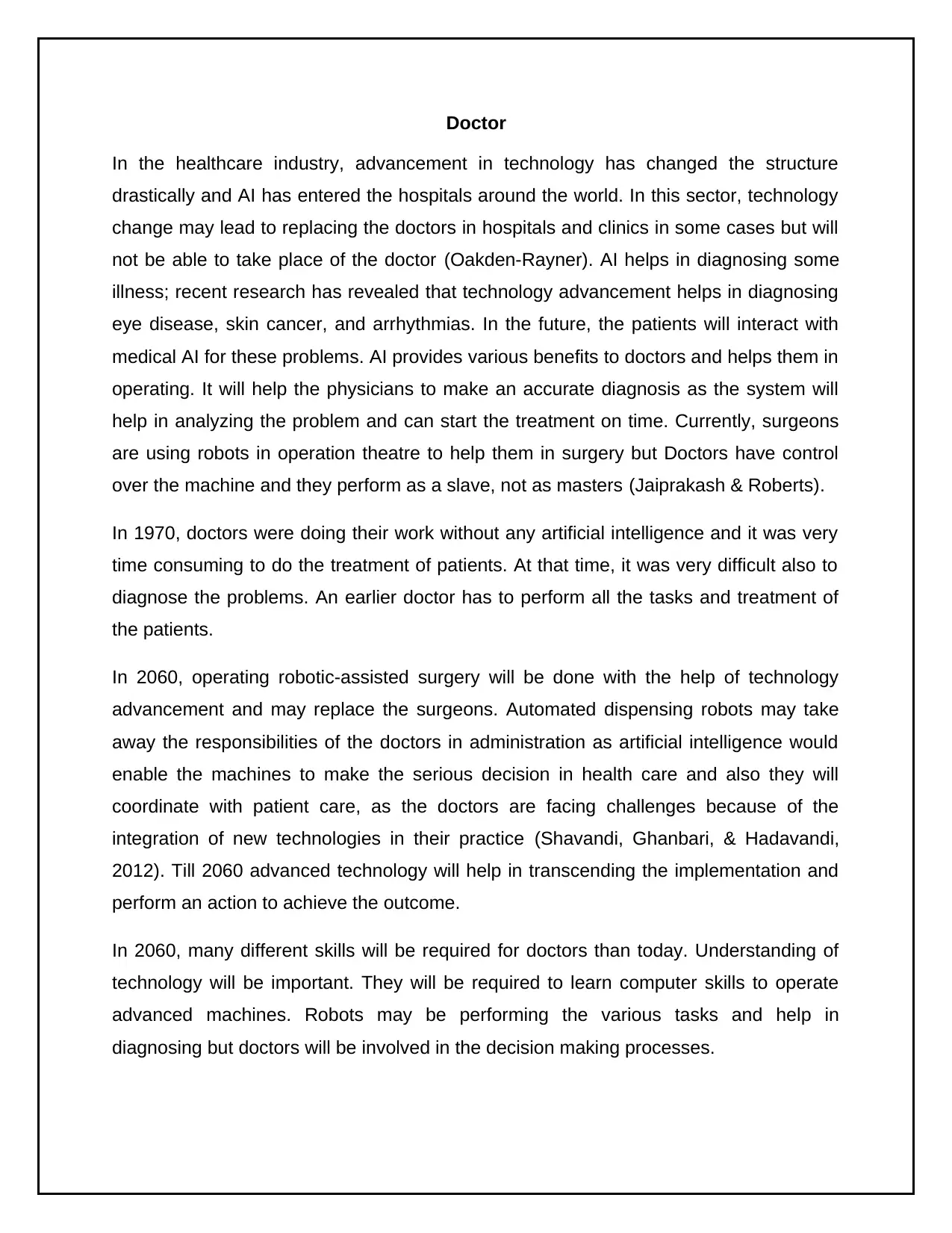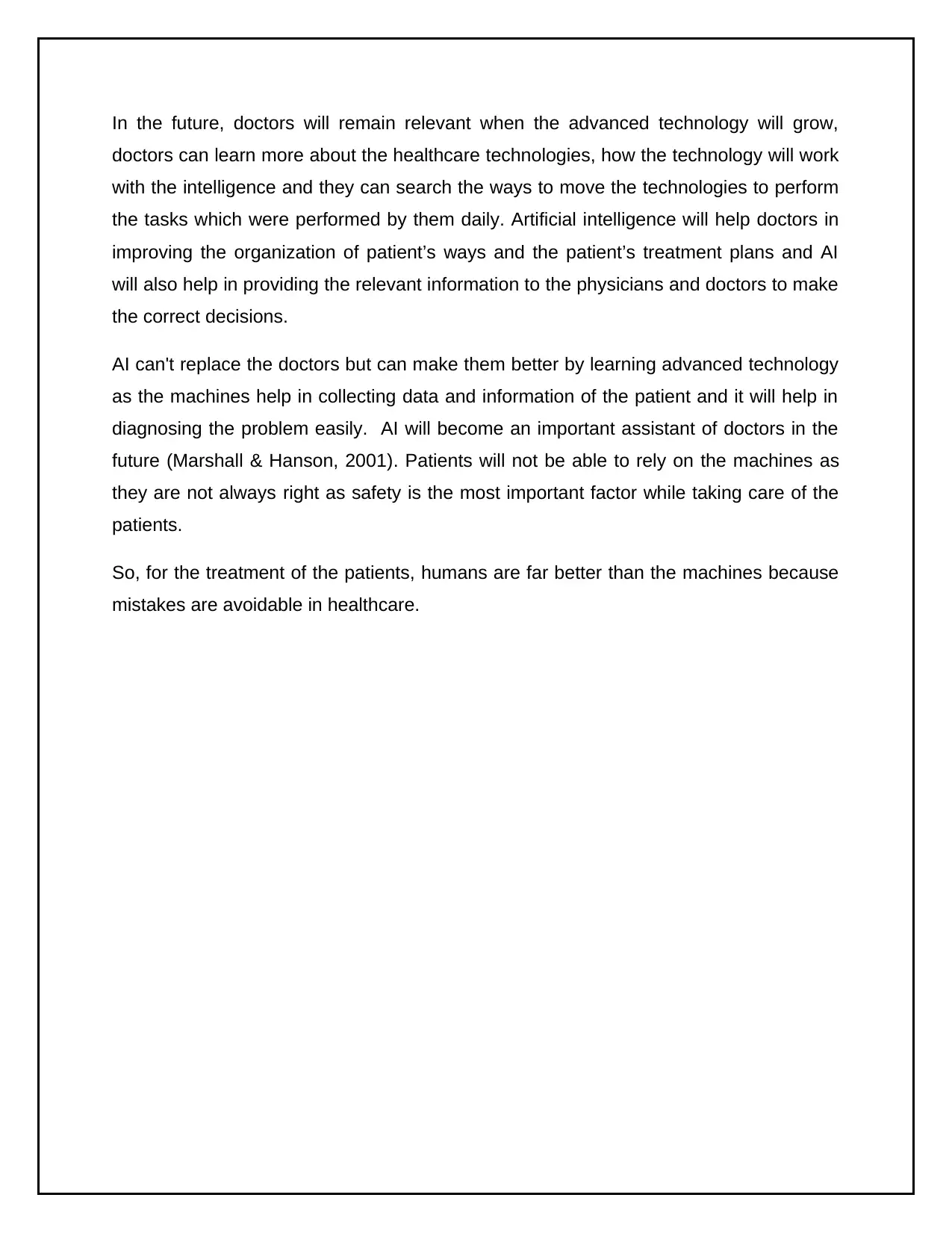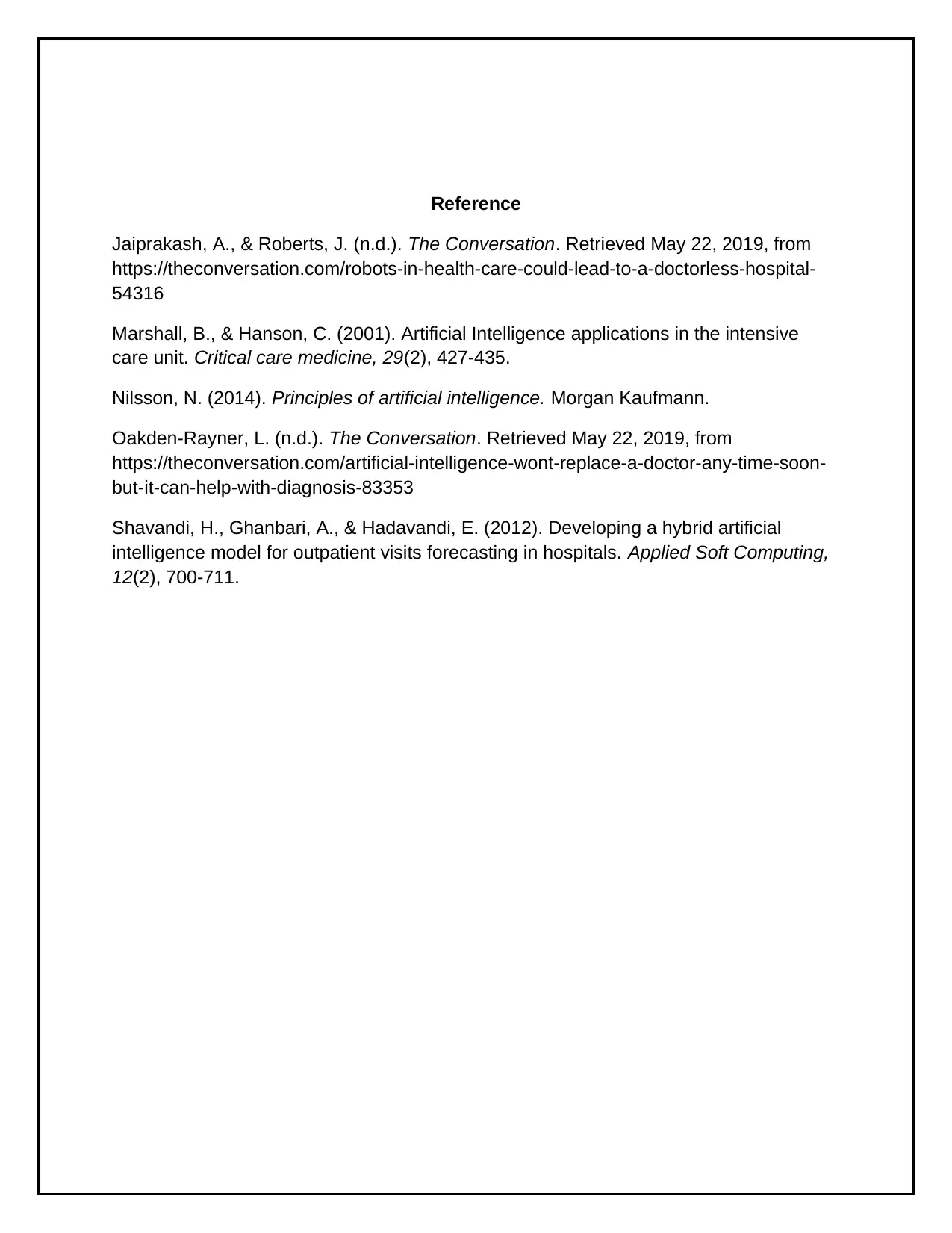AI's Impact on Healthcare: Doctors, Technology, and Patient Care
VerifiedAdded on 2022/10/18
|3
|727
|8
Essay
AI Summary
This essay delves into the transformative impact of artificial intelligence (AI) on the healthcare industry, exploring how technology is reshaping the roles of doctors and influencing patient care. It examines the integration of AI in various aspects of medicine, from diagnosing illnesses like eye diseases and skin cancer to assisting in surgical procedures through robotic-assisted surgery. The essay discusses how AI can enhance doctors' diagnostic accuracy, improve the organization of patient treatment plans, and provide crucial information for decision-making. It contrasts the historical practices of medicine in 1970 with the anticipated advancements in 2060, emphasizing the need for doctors to adapt and acquire new skills, particularly in understanding and utilizing advanced technologies. The essay concludes that while AI will become an essential assistant to doctors, it will not replace them, as human expertise and judgment remain crucial for patient safety and effective treatment.
1 out of 3










![[object Object]](/_next/static/media/star-bottom.7253800d.svg)